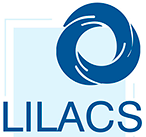Sociodemography and epidemiology of the population attended in a psychological care center in Mexico
DOI:
https://doi.org/10.19136/hs.a21n2.4613Resumen
Objetivo: Fue analizar las características sociodemográficas y diagnósticas de la población en psicoterapia.
Materiales y Método: Diseño cuantitativo, descriptivo, retrospectivo y longitudinal de 322 expedientes.
Resultados: La mayoría es masculina (60%), joven (33%), católica (81%) y con secundaria (26%). Las mujeres presentan más trastornos de ansiedad (56%), relacionados con traumas y estresores (71,4%), personalidad (75%), grupo de apoyo primario (65%), abandono infantil (80%), abuso (71,4%) y otros relacionados con el entorno social (62,5%). Los varones tenían problemas de neurodesarrollo (100%), control de impulsos/conducta (70%) y educación familiar (54,4%). Los problemas más frecuentes son la relación padre-hijo (14,6%), los conflictos con la pareja (8,9%) y la fase vital (6,1%).
Conclusiones: En lugar de tratarse de problemáticas individuales, la mayoría de los problemas (especialmente para las mujeres) se derivan de las dificultades de su entorno (inseguridad, pobreza) o de la falta de habilidades sociales para manejar sus relaciones interpersonales de manera asertiva (estilos de crianza, resolución de problemas de pareja). La masculinidad agresiva se encuentra presente en muchas de las situaciones atendidas, aún cuando los pacientes no habían tomado conciencia de ello al llegar al servicio.
Palabras clave: Servicios de salud mental, trastornos mentales, psicoterapia, características de la población, género y salud
Descargas
Publicado
Número
Sección
Licencia
Derechos de autor 2021 Horizonte Sanitario

Esta obra está bajo una licencia internacional Creative Commons Atribución-NoComercial-CompartirIgual 4.0.





























